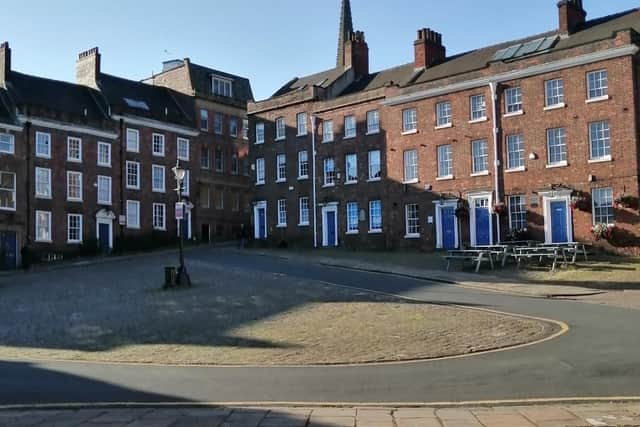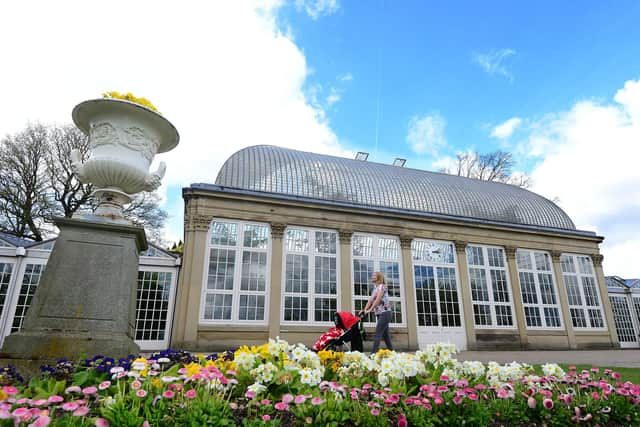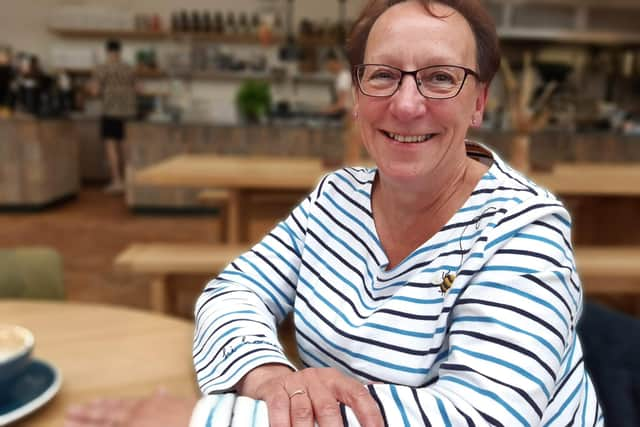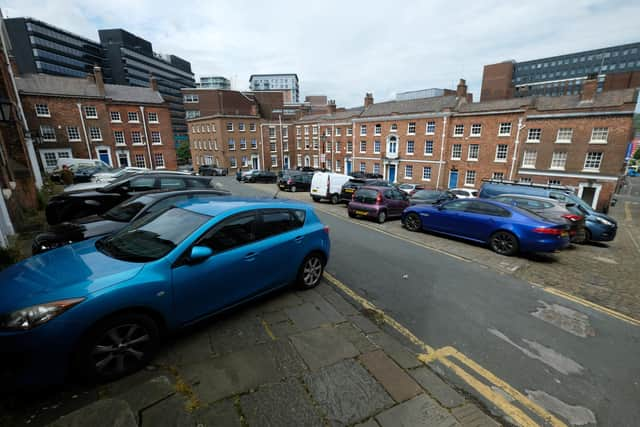Restorations: Trustee open to car-free ideas for Sheffield's historic Paradise Square
and live on Freeview channel 276
But today it is also facing a very modern issue - calls to remove parking from Paradise Square.
Sheffield Town Trust was established by Thomas de Furnival, Lord of the Manor of Hallam, in 1297.
Advertisement
Hide AdAdvertisement
Hide AdInitially it maintained the town’s water supply and bridges, particularly the well that was named Barker’s Pool and Lady’s Bridge. It also paid for a ‘scavenger’ to keep the roads clear.


From being a proto-council in a town with about 1,000 residents, and a large castle, over the next seven centuries it was involved in almost every aspect of the city’s life and development, including maintaining law and order.
In the 1570s it paid for a pillory, repairs to the stocks, and, in 1580, for a ‘cuck stool’ with chains and locks. It also paid to maintain the town’s archery butts and for ale to celebrate the coronation of royalty including Queen Anne in 1702.
It invested in the firms that built the Snake Pass and made the River Don navigable for goods. In 1898, it bought Sheffield Botanical Gardens, saving them from closure, and in 1927 contributed £10,000 to the purchase of Ecclesall Woods by the council.
Advertisement
Hide AdAdvertisement
Hide Ad

Today it supports about 140 groups, organisations, and charities every year, paying out more than £400,000 in 2020.
Somewhere along the way - no one knows when or how - it acquired the listed Georgian delight that is Paradise Square. Full of history and largely intact, it is Sheffield’s best public space.
Today the cobbles are divided into parking spaces, and the fees are a source of income for the trust.


But in recent years there have been growing calls for the cars to be removed so it can be used for other things. In 2018 Sheffield City Council even included the ambition in a 10-year plan.
Advertisement
Hide AdAdvertisement
Hide AdIt is an issue that comes up regularly on social media with suggestions including markets, concerts and a ‘Georgian quarter with shops and cafes’.
But it appears that no one has actually contacted the trust - until now.


The Star spoke to one of the 13 trustees, Julie MacDonald, about the issue. For, despite the charity's great age, it has a website and is easily contacted and the trustees are ordinary people who are keen to raise awareness of their work.
Julie said she had no recollection of them ever being asked about a change of use in the square, even from the council. But she thought the trust would consider it.
Advertisement
Hide AdAdvertisement
Hide AdShe added: “Personally, l think it's a lovely square and it has potential to be put to a better use than a car park. I wouldn't dismiss it, I would look at any proposition."
An annual parking pass is believed to cost about £1,000.
But a decline in the number of cars in the square has been noticed, Julie added.
According to the Charity Commission, the trust has an £8.6m portfolio of property and investments. In 2020 it had total income of £722,000 and paid out £429,000, up from the usual £250,000 due to the pandemic. Recipients included a food bank and organisations working to help people in the pandemic, Julie said.
The average grant is £3,000. Bigger amounts have been given to the likes of St Lukes Hospice, and the trust put a lot of money into a big restoration project at the Botanical Gardens 25 years ago.
Advertisement
Hide AdAdvertisement
Hide AdIts website states: “We will consider a grant for most things as long as it benefits Sheffield and its inhabitants in a charitable or public way.”
Examples include the costs of running a small group (for children, for the elderly or for those with serious illness), protecting our built heritage and environment, or vital refurbishment of premises. It also supports annual and one-off events throughout the city.
BUSINESS NEWS: Sad pictures inside John Lewis
The trust used to be better known when trustees were ‘gentlemen’ who tended to have roles in other big institutions in the city, Julie said. But since the 1970s it has become much more independent in its connections and therefore decision making, while suffering a loss of profile.
This is something trustees want to change.
Julie said: “Fifty years ago we were better known. Today we would like to reach people from more diverse communities.”
Advertisement
Hide AdAdvertisement
Hide AdWhile those stories have yet to be written, the centuries of operation are littered with fascinating nuggets in a history written by Dr Julie MacDonald DL.
It appears it was quite important for a long time: “For over 500 years prior to 1843, much of the responsibility for managing the town had lain in the hands of the trust.”
In 1629, it paid for the construction of a workhouse and regular payments for its maintenance.
In 1876 ‘the trust incurred considerable expense widening Church Street from St James’s Row to Townhead Street’.
Advertisement
Hide AdAdvertisement
Hide AdThings changed dramatically in 1870 when Samuel Bailey, a former trustee, bequeathed property valued at £101,526 10s 1d - some £6.5m today - with instructions that the income was to be used for public benefit or other charitable purposes in Sheffield. This bequest was ‘transformative’.
RESTORATIONS £12m music hub to inspire next generation of talent
In 1939, Charles Henry Maleham left a property on Pinstone Street on condition that income be used to purchase paintings which were to be put on public exhibition. To date, 26 have been purchased including two by J M W Turner and one each by Thomas Gainsborough, Sir Peter Lely and Augustus John; two are on loan to the Cutlers’ Company, the others to Sheffield Museums and Galleries Trust.
Trustees, who receive no ‘remuneration, payments or benefits,’ meet four times a year.
Sheffield City Council was contacted for comment.
